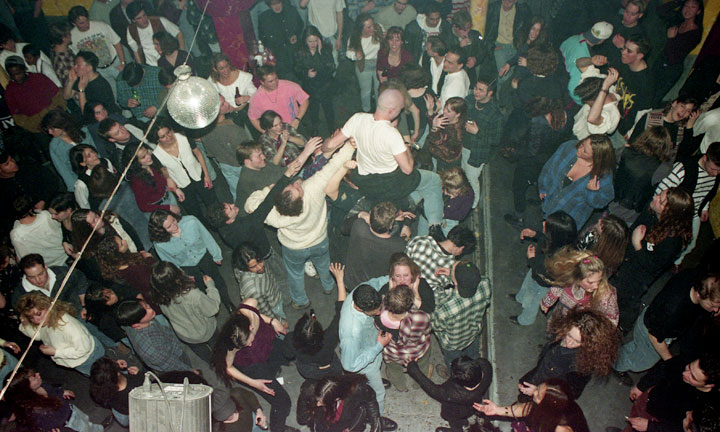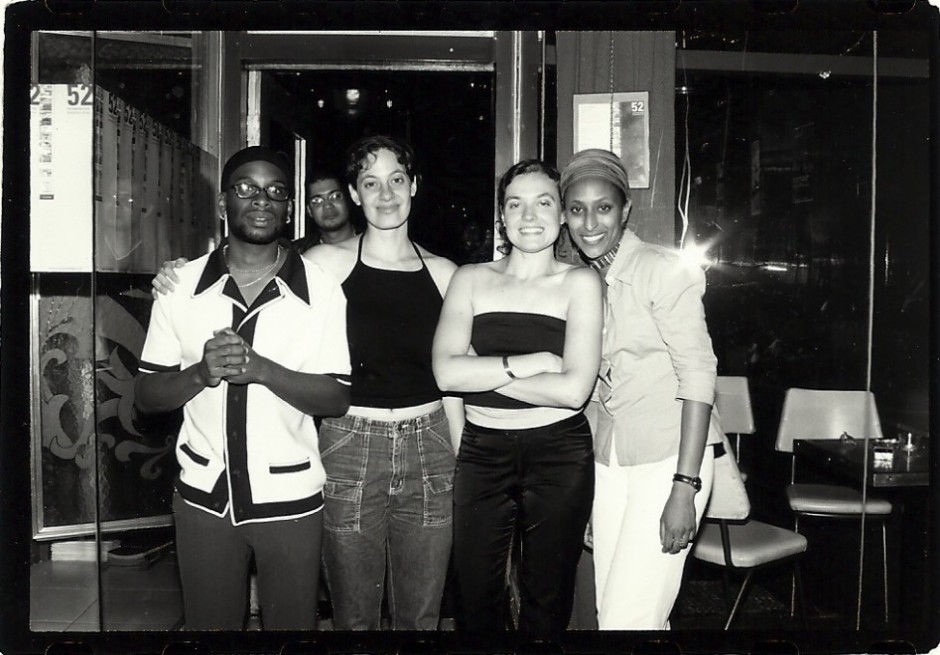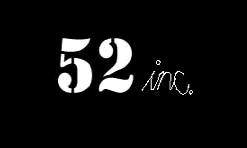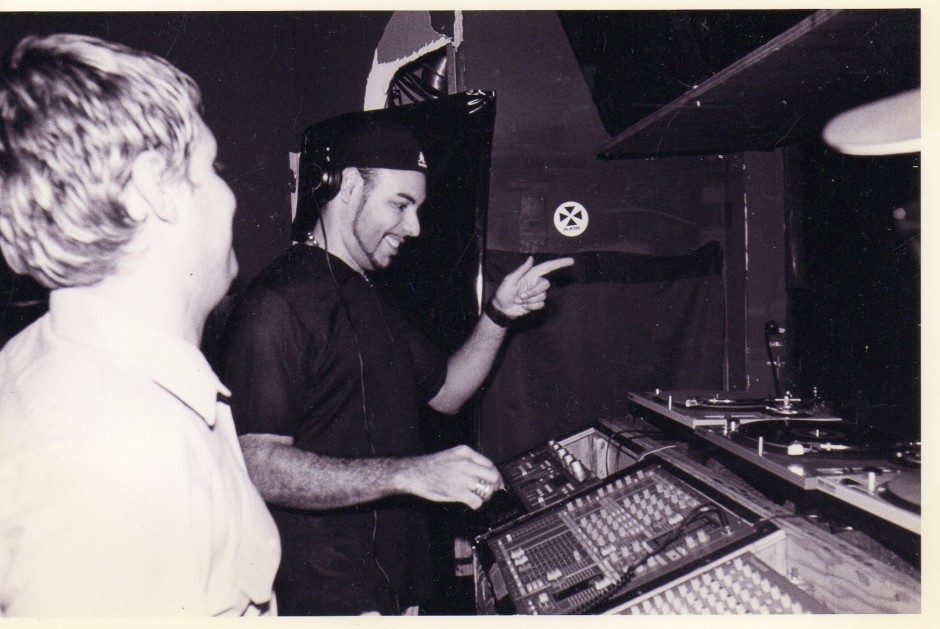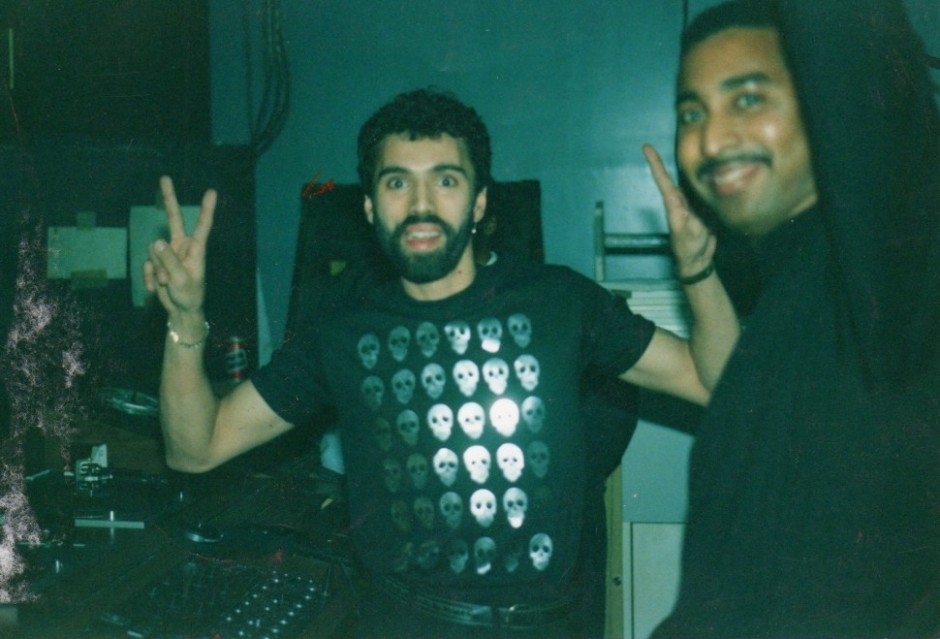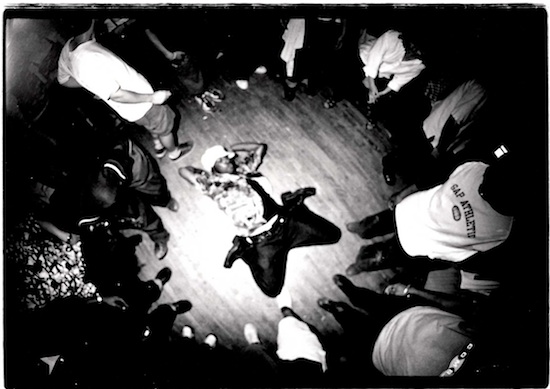Klub Max dancefloor circa 1994. Photo by Steven Lungley. All rights reserved.
Article originally published January 19, 2012 by The Grid online (TheGridTO.com).
Denise Benson revisits the three-storey super-club that was at the epicentre of Toronto’s early ‘90s Entertainment District explosion.
BY: DENISE BENSON
Club: Klub Max, 52 Peter (now 56 Blue Jays Way)
Years in operation: 1990-1994
History: This is a tale of a changing Toronto. It tells the story of an historic area in transition, mere years before it came to serve as the meeting point for the touristy and the trendy. Also at its centre is a man who became one of this city’s most successful nightlife entrepreneurs, as well as a number of our most recognized DJs.
52 Peter Street was once the George Crookshank House. Built in the 1830s, it’s one of the street’s oldest buildings and was designated an historic site under the Ontario Heritage Act. But its beautiful brick frontage would be obscured by modern smoked glass and signage when Nick Di Donato and his Liberty Entertainment Group renovated it extensively at the end of the 1980s to open, at first, a single-level P.M. Toronto sports bar and restaurant.
In 1990, Di Donato and colleague Angelo Belluz developed the property into the area’s first full-on dance club—a three-floor funhouse named Klub Max. It took vision—and nerve—to open a large club there at the time.

